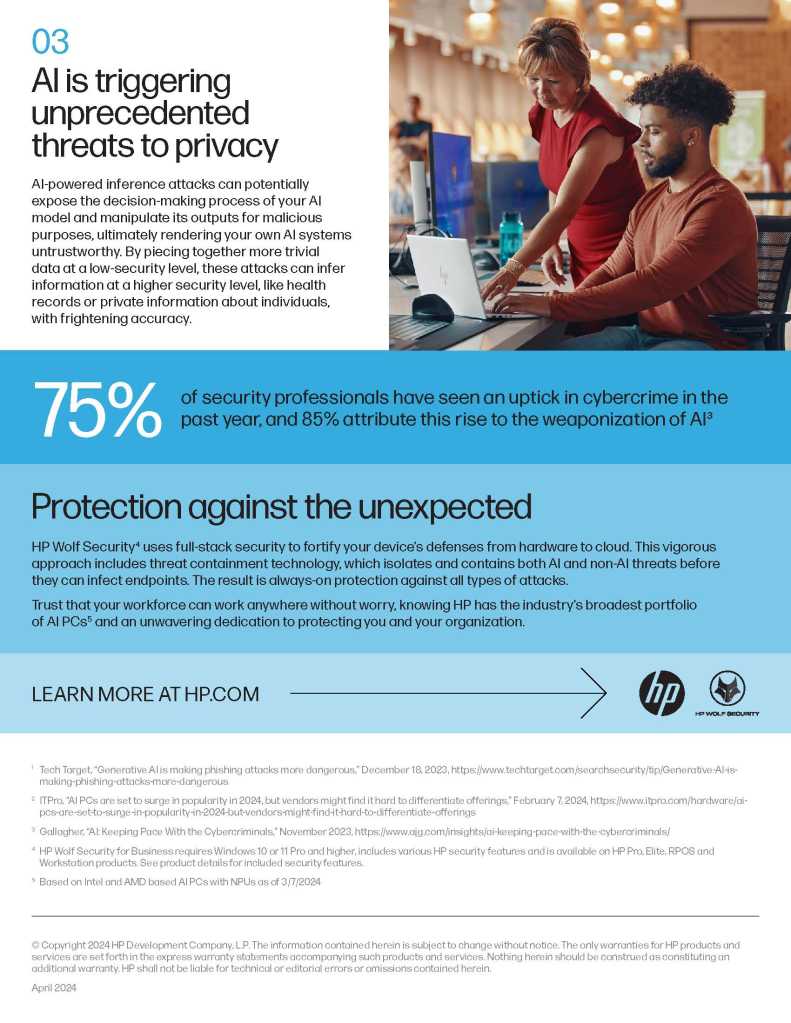- The Apple Watch Ultra 2 is a near-perfect smartwatch and it's $70 off now
- These mainline OnePlus earbuds are a great buy at full price - but now they're $40 off
- These are the Memorial Day sales fitness enthusiasts should pick up
- This tiny 2-in-1 charger solved my biggest problem with traveling - and it's on sale
- Finally, a budget smartwatch that's just as durable as my Garmin (and it's on sale)
Three ways AI is raising the stakes around endpoint security

AI has made endpoint security even more challenging by accelerating attacks, raising the value of information at the endpoint, and making seemingly benign data highly sensitive.
Read the three things you need to know.
AI is supercharging attacks
Generative AI is accelerating the volume and sophistication of attacks, allowing bad actors to evade traditional defenses. According to TechTarget [1], large language models (LLMs)—AI systems that can understand and generate human language—are being used to make phishing emails more believable and urgent.
AI is making endpoints prime targets
Companies are embracing PC-based AI. But while this approach can improve speed, privacy, and user experience, it also significantly increases the value of data. This makes endpoints an even more attractive target for bad actors, especially because endpoints are more mobile than ever, which has amplified their exposure and made them more difficult to protect.
AI is triggering unprecedented threats to privacy
AI-powered inference attacks can potentially expose the decision-making process of your AI model and manipulate its outputs for malicious purposes, ultimately rendering your own AI systems untrustworthy. By piecing together more trivial data at a low-security level, these attacks can infer information at a higher security level, like health records or private information about individuals, with frightening accuracy.
Protection against the unexpected
HP Wolf Security [2] uses full-stack security to fortify your device’s defenses from hardware to cloud. This vigorous approach includes threat containment technology, which isolates and contains both AI and non-AI threats before they can infect endpoints. The result is always-on protection against all types of attacks. Trust that your workforce can work anywhere without worry, knowing HP has the industry’s broadest portfolio of AI PCs [3] and an unwavering dedication to protecting you and your organization.
HP

HP
[1] Generative AI is making phishing attacks more dangerous | TechTarget
[2] HP Wolf Security for Business requires Windows 10 or 11 Pro and higher, includes various HP security features and is available on HP Pro, Elite, RPOS and Workstation products. See product details for included security features.
[3] Based on Intel and AMD based AI PCs with NPUs as of 3/7/2024

